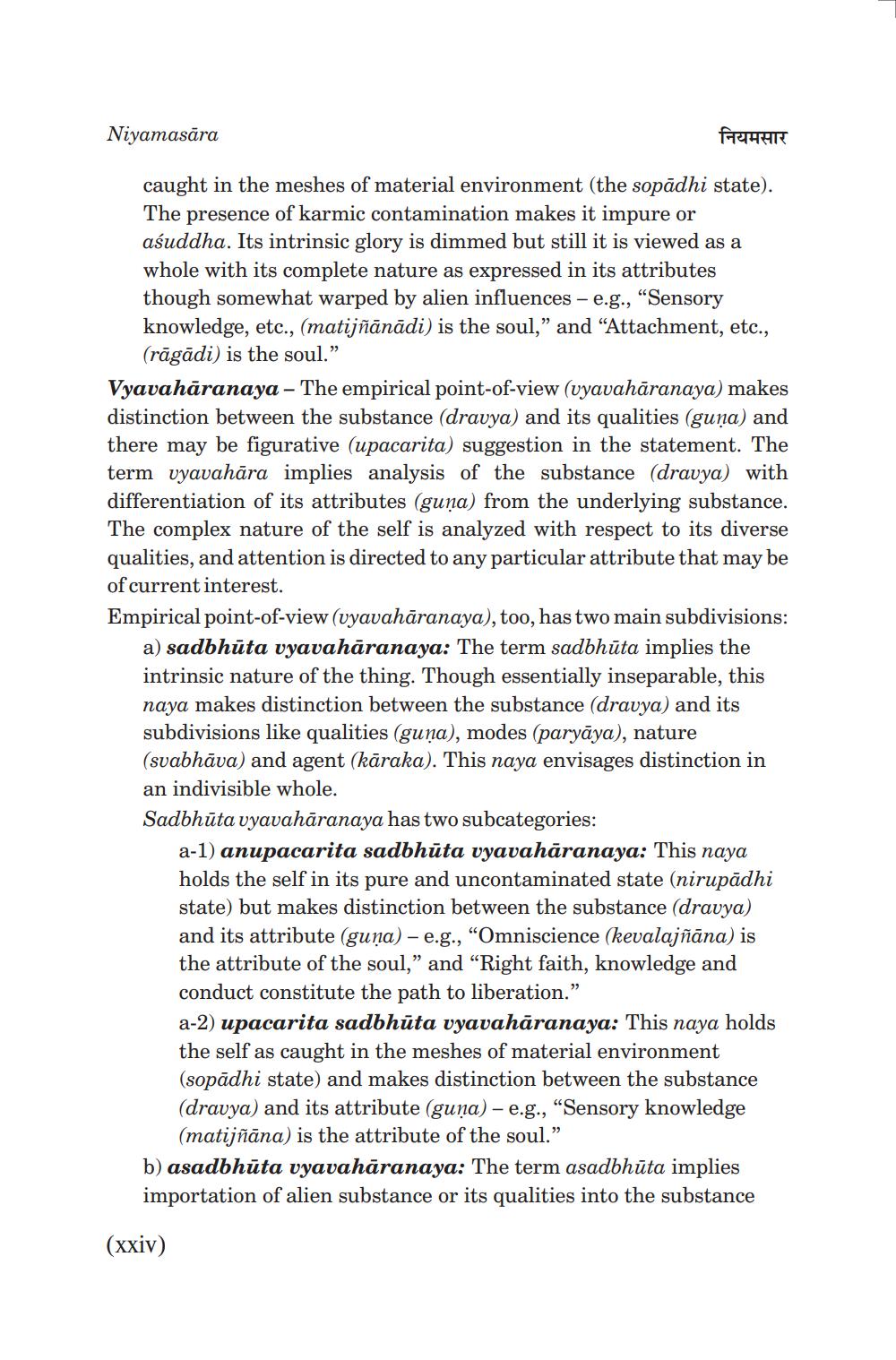________________
Niyamasāra
नियमसार
caught in the meshes of material environment (the sopādhi state). The presence of karmic contamination makes it impure or aśuddha. Its intrinsic glory is dimmed but still it is viewed as a whole with its complete nature as expressed in its attributes though somewhat warped by alien influences - e.g., "Sensory knowledge, etc., (matijñānādi) is the soul,” and “Attachment, etc.,
(rāgādi) is the soul.” Vyavahāranaya - The empirical point-of-view (vyavahāranaya) makes distinction between the substance (dravya) and its qualities (guņa) and there may be figurative (upacarita) suggestion in the statement. The term vyavahāra implies analysis of the substance (dravya) with differentiation of its attributes (guna) from the underlying substance. The complex nature of the self is analyzed with respect to its diverse qualities, and attention is directed to any particular attribute that may be of current interest. Empirical point-of-view (uyavahāranaya), too, has two main subdivisions:
a) sadbhūta vyavahāranaya: The term sadbhūta implies the intrinsic nature of the thing. Though essentially inseparable, this naya makes distinction between the substance (dravya) and its subdivisions like qualities (guņa), modes (paryāya), nature (svabhāva) and agent (kāraka). This naya envisages distinction in an indivisible whole. Sadbhūta vyavahāranaya has two subcategories:
a-1) anupacarita sadbhūta vyavahāranaya: This naya holds the self in its pure and uncontaminated state (nirupādhi state) but makes distinction between the substance (dravya) and its attribute (guņa) - e.g., "Omniscience (kevalajñāna) is the attribute of the soul," and "Right faith, knowledge and conduct constitute the path to liberation." a-2) upacarita sadbhūta vyavahāranaya: This naya holds the self as caught in the meshes of material environment (sopādhi state) and makes distinction between the substance (drauya) and its attribute (guņa)-e.g., "Sensory knowledge
(matijñāna) is the attribute of the soul." b) asadbhūta vyavahāranaya: The term asadbhūta implies importation of alien substance or its qualities into the substance
(xxiv)




